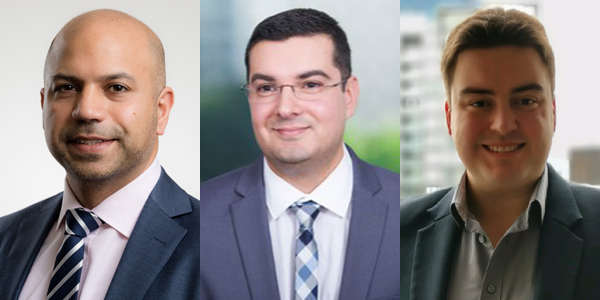The future of the actuary is no laughing matter
We’ve all heard plenty of jokes about actuaries. “They’re like accountants but with less personality…” That sort of thing. According to Jas Singh, who works with a lot of actuaries, many of the jokes suggest they are naturally pessimistic. If that’s the case, right now, there is no choice but to be optimistic – in fact, it’s a necessity, he said.
Singh, a recruiter with SKL who specialises in actuarial positions, was a panelist at one of last week’s sessions at the Actuaries Institute conference (August 17), which this year, spanned three weeks. His session was on “The Future of the Actuary”. The consensus was that new technologies represented the key to the future growth of the profession. His fellow panelists were Ryan Boyd, an actuary specialising in general insurance at Allianz Partners, and Ajay Parshotam from Deloitte. Moderator was Ashish Ahluwalia from Finity Consulting, which specialises in actuarial and insurance matters.
Singh splits his world into three different “types” of actuaries: the “high flyer” tending to operate in non-traditional fields of senior management; the “aspirational”, which covers the bulk of the profession, typically in middle or upper management; and, the “settled actuary” who has developed other interests too, either for work or as hobbies.
He said one didn’t need to look too far into the future as most things evolved over time. In the short term, at least, the future was a continuation of the present. “But the elephant in the room is the environment of disruption leading to potential new entrants in the insurance market. For example, Tesla (the electric car maker) has set up its own insurance company, initially to insure its own cars,” he said. But we don’t know where that will lead.
Another unknown, he said, was “whether the life insurance industry will eventually start to make money again.” About 40 per cent of all actuaries in Australia are employed in life insurance. With the rise of working remotely there is easy access to foreign remote workers. But the “saviours” of the actuarial profession included:
- risk: actuaries quantified risk better than anyone else
- commercial competitive tension
- legislation: requiring their involvement, and
- attitude: “our ability to work with machines and our ability to solve problems in a different way”.
Parshotam said that many new technologies might be new to actuaries but not necessarily new to other professions. “Our profession hasn’t changed a lot in the past 15 years,” he said. “We still spend too much time doing operational work. That makes us ripe for disruption… We are not evolving and spending more time on value-added work.” A recent survey showed that data checks and data preparation made up more than 50 per cent of an actuary’s work time.
On the new technologies, Ryan Boyd said artificial intelligence (AI) meant that there could be automation of claims and, possibly, the automation of underwriting in terms of defining contract price. “This has implications for actuaries… We need to be able to influence our boards to be able to access new technologies,” he said. “The values actuaries need are to be agile and flexible. We also need to be resilient,” Parshotam said. “The skills we need to take us into the future are in storytelling and communications.” Boyd said he was “very optimistic” about the future for actuaries but technical skills alone were insufficient for continued professional success. “We are going to have to explore more of the softer skills… And, remember, we are doing this for the policy holder.”
– G.B.











